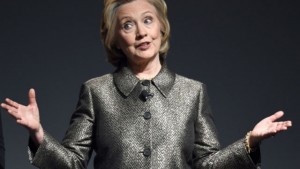
Hillary Clinton
FLORIDA, United States, Tuesday, August 4, 2015 – Democratic presidential front-runner Hillary Clinton on Friday urged Congress to lift the 50-year US trade embargo on Cuba, calling it a “failed policy” that had done little or nothing to foster change on the communist Caribbean island.
Clinton, the former secretary of state, said the US had reached a “decisive moment” in the thawing of its relations with Havana, following an unprecedented shift in policy by Barack Obama in December.
“The Cuban people have waited long enough for progress to come. The Cuba embargo needs to go, once and for all,” she said.
“We should replace it with a smarter approach that empowers the Cuban private sector, Cuban civil society and the Cuban-American community to spur progress and keep pressure on the regime.”
The Guardian reports that although it was Clinton’s husband, former president Bill Clinton, who signed sanctions against Cuba into federal law, the former secretary of state was reportedly instrumental in helping to orchestrate negotiations between the two countries for the first time in a half-century.
She has been publicly supportive of the Obama administration’s decision to re-establish ties between the US and Cuba, which has included the lifting of certain sanctions, the removal of Cuba from the state sponsors of terrorism list and exchange of embassies in Washington and Havana.
Last Friday, Clinton publicly argued her case in detail for the first time in Miami, in a region that is home to about 80 per cent of America’s 1.5 million-strong Cuban-American population, and is the backyard of two of her chief Republican opponents, former Florida governor Jeb Bush and US senator Marco Rubio, the latter of whom was born to Cuban immigrants.
“We have the chance for a fresh start in the Americas,” she said. “No region in the world is more important to our long-term prosperity … and no region in the world is better positioned to emerge as a new force for global peace and progress.”
That progress had been promised to Cuba for 50 years, she added, and the time had come to acknowledge that the US could no longer wait “for a failed policy to bear fruit.”
Rubio and Bush have been critical of Obama’s move to restore relations with Cuba because of its record on human rights. But Clinton argued diplomacy and engagement would do more to improve conditions in the country.
The former secretary of state went on to indirectly attack both Republican presidential hopefuls for supporting “ideology over evidence.”
“Most Republican candidates running for president would play right into the hardliners’ hands. They would reverse the progress we have made,” she said.
“Fundamentally, most of the Republican candidates still view Cuba and Latin America more broadly, through an outdated cold war lens. For them ideology trumps evidence, and so they remain incapable of moving us forward.”
Clinton added that Republican candidates “have it backwards” by insisting that renewed diplomatic relations will further embolden the Castro regime.
“Engagement is not a gift to the Castros, it is a threat to the Castros. An American embassy in Havana isn’t a concession, it’s a beacon,” she said. “Lifting the embargo doesn’t set back the advance of freedom. It advances freedom.”
“We will let Raúl [Castro] explain to his people why he wants to prevent American investment,” she added.
Clinton’s speech is thought to be a sign of a generational shift in politics in Florida, where younger Cuban Americans are less wedded to the embargo embraced by older exiles.
But many remain sceptical. An editorial in the Miami Herald newspaper said Cuba needs to give its citizens more basic freedoms before the United States lifts the embargo.
“One does not have to be a hardliner to expect a quid pro quo of some kind as this process moves forward. Simply put, Cuba hasn’t earned the embargo’s end. Far from it,” the newspaper said.
President Obama has already loosened many restrictions on US travel to Cuba. But Clinton said she would do more to free up travel if elected president, whether or not the embargo has been dismantled.
The embargo allows US sales of agricultural goods and medicine to Cuba, but a market of more than 11 million people is still largely off limits to most American companies because they are banned from doing business in Cuba.
